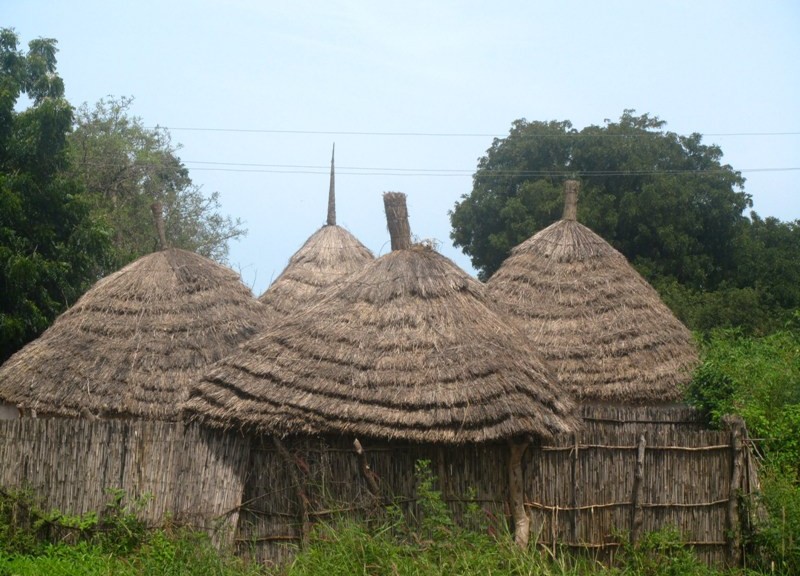Time to visit a new country and this time around it’s Senegal.
I am working with a farmers association that goes by the pithy name of Agricultural Society of Advice in Supplying, Production and Marketing for the Agreement of the Associated Groups in Senegal. But since Senegal is a Francophone country my client is more commonly called Société d’Approvisionnement, de Production, de Commercialisation et de Conseil Agricole des Ententes des Groupements Associés du Sénégal. Equally memorable. If this were a branding assignment I believe I would be able to tighten up the brand name a bit. But instead, this is an organizational improvement task.
Senegal is Africa’s westernmost country, found on the tip of the West African bulge. I arrived late at night in Senegal’s vibrant capital, Dakar. Vibrant I think – – I arrived near midnight, went straight to bed, woke up early the next day for the seven hour drive east to Tambacounda where I am based. I will check out the reports of Dakar’s vibrancy once I complete my work and my post-work travels and return there.
I have arrived near the end of the rainy season and the beginning of the annual harvest. Senegalese sometimes call this the hunger season. The current crop is not yet quite ready to harvest and last year’s crop has been totally consumed. The storerooms are empty. Consequently, the World Food Program is providing rice, split peas, and cooking oil during the nearly two month long hunger season leading up to the fall harvest.
From my base in Tambacounda we drove one hour down the highway and then about 10 miles through the bush to the village of Touba aly Mbenda where heavy overnight rains had collapsed the mud brick walls of three homes. Farmers don’t have an easy life here, but they are nevertheless a happy lot. They live close to nature, have strong family and religious connections, and lead a simple, but perhaps challenge-prone life: shortage of food, crumbling homes.
I began my work by meeting with 30 association farmers to conduct an assessment of their organizational, management, and business needs. I created a set of probing questions in English. For example, “How are your association leaders selected? And, what changes would you make to the selection process?” My Senegalese colleague, Yaguemar, translated the questions into French, based on the assumption that some of the farmers had been taught to read French but not Wolof, Senegal’s primary indigenous language. Most Senegalese are Wolof speakers, but not readers. Literacy is less than 40% in Senegal and certainly substantially lower in this rural region.
We split the participants into three groups to discuss the questions and thereby tell us their organizational needs. A literate person in each group took these questions and verbally translated the French into Wolof for the rest of the group. As the groups discussed our list of questions, I wandered from group to group where I recognized an occasional French phrase and not a single word of Wolof.
I suspect the long chain of translation – – English to French to Wolof and back to English (for my benefit) – – diluted the message a bit. Nevertheless, based on the results of the needs assessment, I spent several days training and a couple more days giving advice. After all, I sort of make a living as a management consultant.
Each morning after training we would break for lunch and afternoon prayers (Senegal is 95% Muslim.) Lunch was, every day without exception, a mound of rice with some spices, a bit of eggplant and red pepper, and a scrawny roasted chicken on top. We would eat communally by right hand from a rice filled dishpan. The flavor was actually pretty good; it’s just that, at one point, six consecutive days eating rice from a dishpan lacked variety. And with up to nine of us around the dishpan with a single chicken, the protein component was meager. Think about it, when was the last time you ordered rice and 1/9 of a chicken?
Every morning and afternoon a helper from the village would wander through my training class passing out jiggers of hot sweet tea, hard candy, and kola nuts to the participants. The kola nuts are a mild stimulant and hunger suppressant. The helper, passing randomly among the attendees, served to disrupt the class’ attention. As did the ringing cell phones. Farmers are poor, but most have cell phones, and I learned it is a cultural imperative to keep your ringer on at all times…even if asked nicely by the trainer to silence it.
After my stint in Touba aly Mbenda, I repeated the needs assessment and training drill in a second village, Bamba – – maybe the inspiration for the Richie Valens classic. But I doubt it. Bamba’s main crop is peanuts, Touba aly Mbenda leads with millet. But both serve lots of rice.

